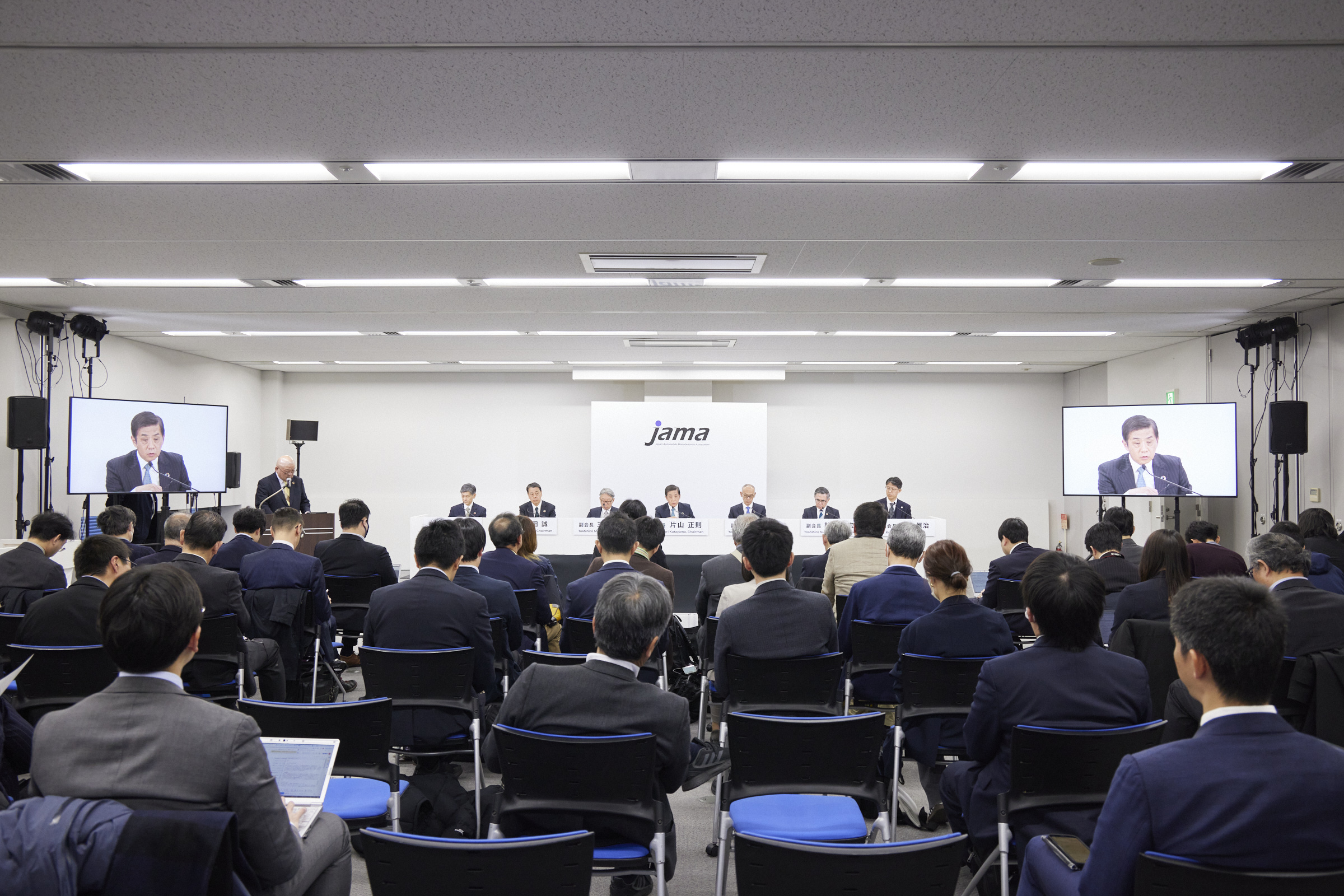Press Conference
- HOME
- News
- Press Conference
- JAMA Leaders Take Ownership of “Seven Issues” Facing the Auto Industry
– JAMA Press Conference March 2024
JAMA Leaders Take Ownership of “Seven Issues” Facing the Auto Industry
– JAMA Press Conference March 2024
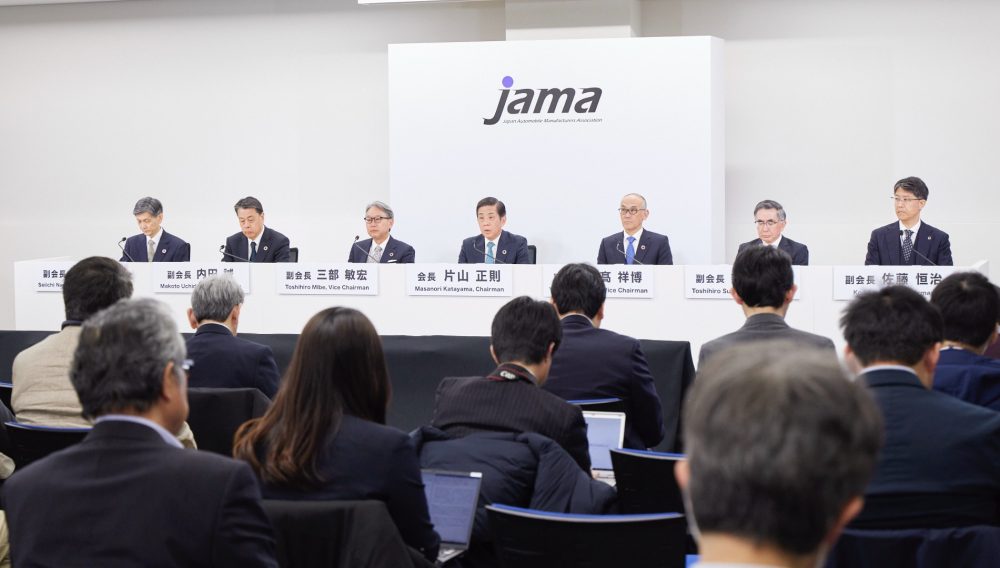
The Japan Automobile Manufacturers Association (JAMA) held a press conference on March 22, 2024.
The organization adopted a new leadership team under Chairman Masanori Katayama (Isuzu), who took over the reins from former Chairman Akio Toyoda (Toyota) in January.
Full Archive of Press Conference
KATAYAMA Masanori, Chairman
(Chairman, Isuzu Motors Ltd.)
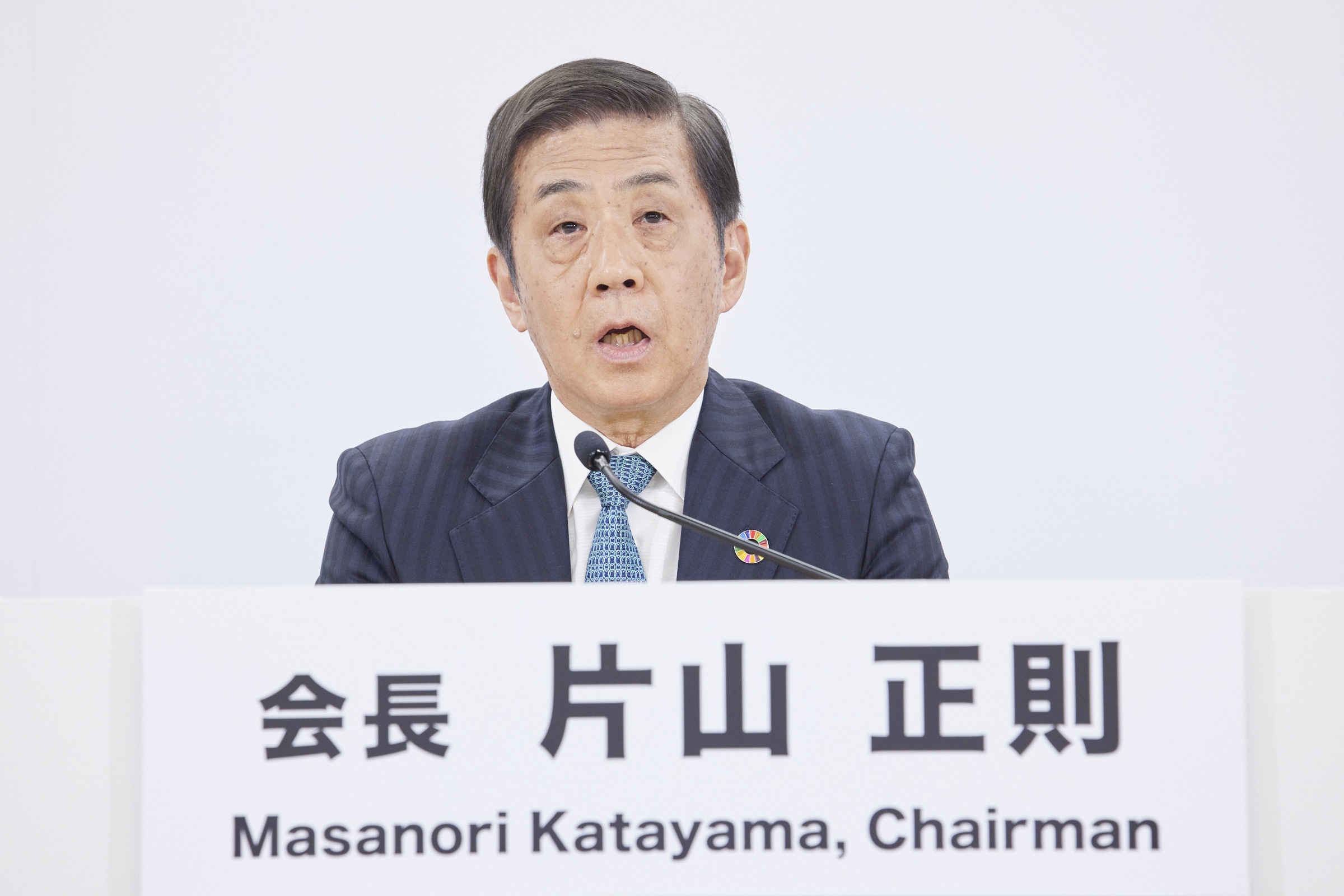
I would like to begin by expressing my deepest condolences for the victims of the Noto Peninsula Earthquake that occurred on January 1 and extending my heartfelt sympathies to all those affected by the disaster.
With many still forced to live in evacuation shelters, we sincerely hope for the speedy recovery of disaster-stricken areas. We will continue to work with national government ministries and local authorities in the affected region to provide assistance in accordance with the needs of communities.
In January, I succeeded Akio Toyoda as JAMA chairman. In this period of once-in-a-century transformation, Japan’s auto industry is facing various challenges, from the pursuit of carbon neutrality to the 2024 problem that threatens to bring logistics to a standstill. Working closely with our vice chairmen and board members, I intend to tackle these issues head-on and commit our full efforts to overcoming this difficult situation.
In addition, following suggestions that a member company violated the Subcontract Act, the Japan Fair Trade Commission has asked us to make examples of infringing conduct widely known to prevent future violations. At the same time, the commission urged further improvements to transactions across the industry, including a revision of how cost reduction requests are made to ensure they comply with laws and regulations related to future price shifts.
At JAMA, we take this matter very seriously. Today, the board agreed that all member companies must take thorough preventative measures, including conducting urgent checks of legal compliance, to further instill proper business practices.
A Fair Trade Commission investigation also named JAMA member companies among businesses found to have left prices unchanged without consulting partners.
Working with the Japan Auto Parts Industries Association, we will ensure that all member companies explicitly consult with partners during price negotiations and adhere to the guidelines for passing on shifting labor costs in pricing.
Regarding the spring wage negotiations, the results have largely been finalized. While protecting jobs through tough economic conditions, the auto industry has sustained wage increases above the average among large manufacturers.
In the most recent negotiations, nearly all member companies fully met worker demands, seeking to raise wages to offset the cost of living. Amid ongoing inflation, JAMA members will continue striving for growth, employment, and the sharing of profits while strengthening business practices to ensure price increases are passed on fairly throughout the supply chain.
JAMA has also identified seven issues that we must focus on over the next two years to develop the auto industry into a mobility industry and keep contributing to the Japanese economy as one of its core sectors.

The first of these—enhancing value and efficiency in logistics, commerce, and mobility—is my personal area of responsibility. I am exploring ways to help solve issues related to the 2024 logistics problem, including through data collaboration and the use of autonomous driving.
I am also addressing the other issues in joint ownership with the vice chairmen here today. We want to coordinate the areas they oversee and speed up an all-Japan effort that extends beyond the auto industry through collaboration with Keidanren’s Committee on Mobility and various companies, as well as discussions with government officials.
The challenges we face are wide-ranging, and we hope that the media will continue to support JAMA’s efforts in these areas.
HIDAKA Yoshihiro, Vice Chairman
(President and CEO, Yamaha Motor Co., Ltd.)
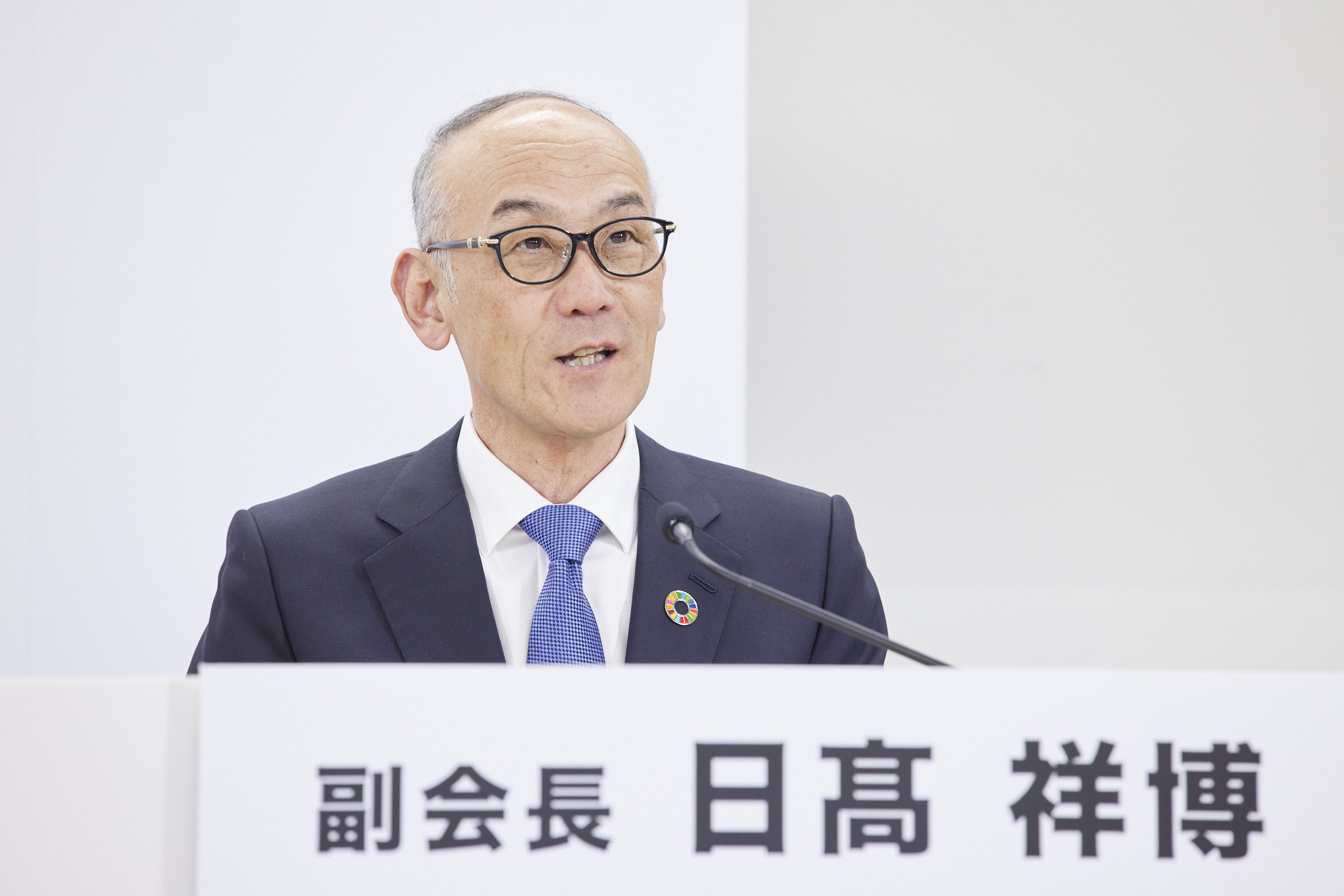
Of the seven issues, I will focus on number six, competitive green energy, and number seven, building the foundations for cross-industry data collaboration and component traceability*.
For issue six, I will work with Vice Chairman Suzuki to give shape to the multi-pathway vision by establishing an environment where various forms of green energy can be harnessed competitively.
Meanwhile, issue seven is concerned with IT infrastructure. Firstly, to strictly comply with incoming European battery regulations, we want to implement battery traceability using the Ouranos** IT system while also expanding the scope of data collaboration among companies in Keidanren’s Committee on Mobility, with the aim of turning the Mobility Smart Passport concept*** into reality.
In any event, as we address these seven issues, I want to work closely with the chairman and my fellow vice chairmen to energize Japan’s auto industry.
- *
- Enabling product materials to be traced from procurement to production, consumption, and disposal.
- **
- Ouranos Ecosystem. A METI-led initiative to build a Japanese ecosystem for cross-border data sharing and system collaboration, spanning across companies and industries, for the purpose of solving social issues.
- ***
- Building on the integration of My Number Cards with driver’s licenses, this concept seeks to create a data-linkage system that connects the IDs of people and vehicles, enabling the consolidation and utilization of various forms of data.
MIBE Toshihiro, Vice Chairman
(President and CEO, Honda Motor Co., Ltd.)
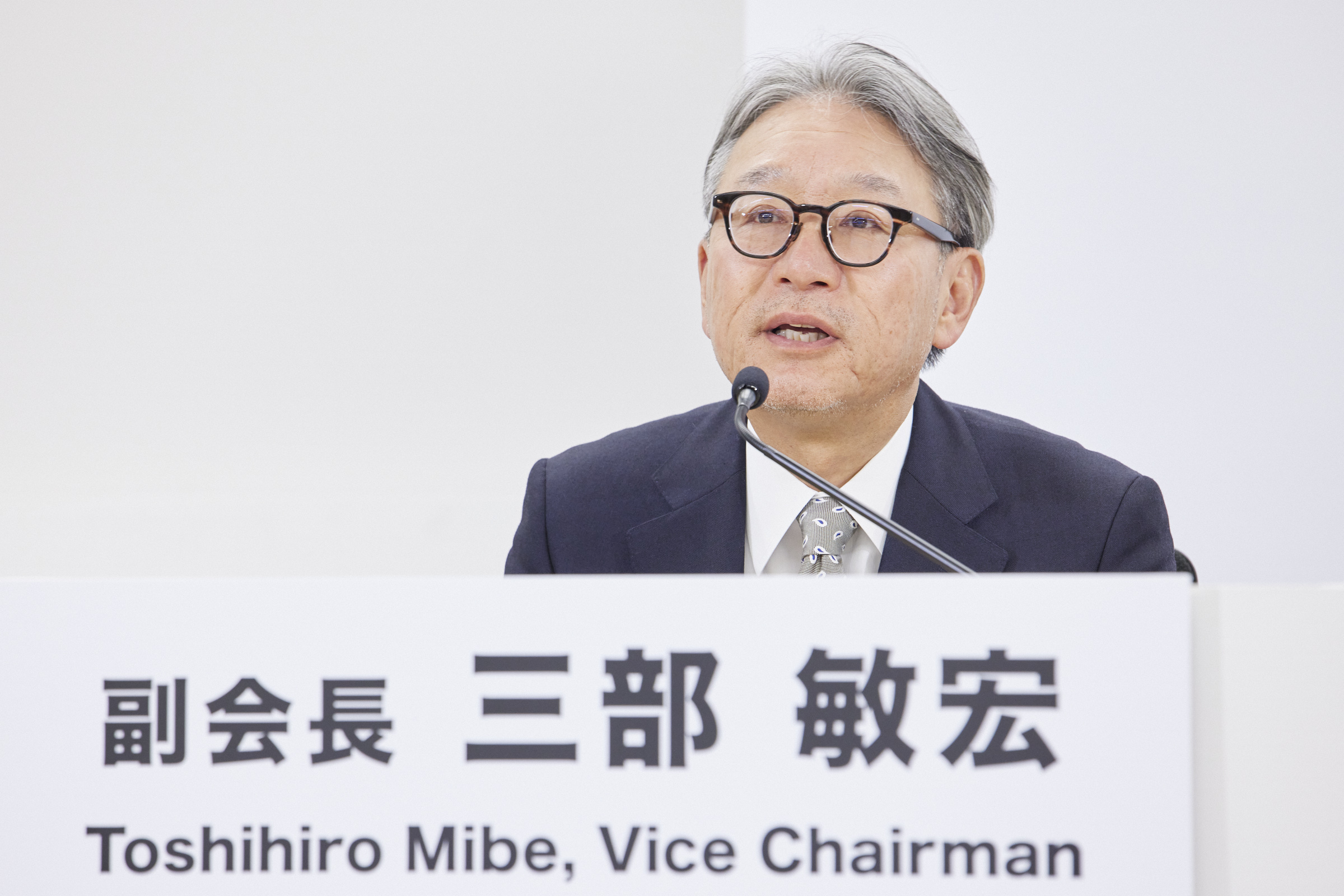
Of the seven issues, I will be working in the area of semiconductors.
In recent years, chip shortages have caused problems for automotive manufacturers. Among these, legacy * as well as analog chips, which are the core semiconductors for automobiles, will see demand expand even further in coming years. I will work to address this effectively, with the aim of ensuring stable supplies.
*Semiconductors made with older-generation processes, mainly used in automobiles, energy development, and infrastructure-related (B-to-B) sectors.
Since JAMA cannot achieve this on its own, we want to explore joint public-private projects with the extensive cooperation of tier one suppliers, trading firms, and semiconductor manufacturers.
- *
- Semiconductors made with older-generation processes, mainly used in automobiles, energy development, and infrastructure-related (B-to-B) sectors.
SUZUKI Toshihiro, Vice Chairman
(Representative Director and President, Suzuki Motor Corp.)
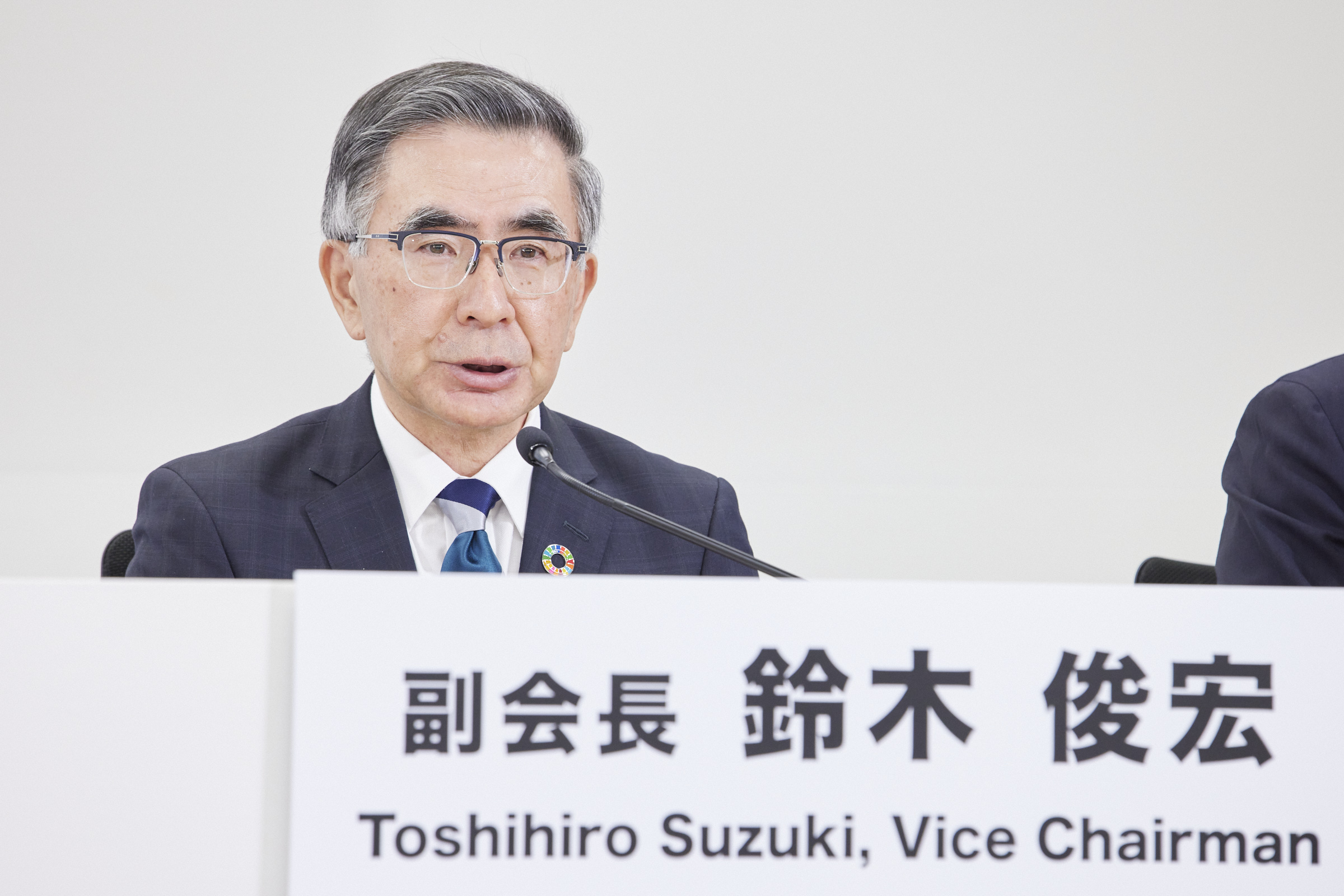
With the vice chairmen and board members firmly behind Chairman Katayama, I want to ensure that we can all work proactively toward solving the auto industry’s issues.
We will make sure JAMA speaks with one voice, sharing accurate information founded in solid principles. At the same time, we will strive to contribute to Japan’s development by engaging other industries in our efforts.
In focusing on the issue of competitive green energy, I will aim to speed up the rollout of carbon-neutral fuels.
This is one of the diverse options that forms JAMA’s multi-pathway approach. However, numerous hurdles stand in the way of commercialization and widespread adoption.
I want to solve each of these problems by engaging not only the auto industry but also the oil industry and other sectors, Keidanren, and the government. I think it’s important to start by taking action.
UCHIDA Makoto, Vice Chairman
(President and CEO, Nissan Motor Co., Ltd.)
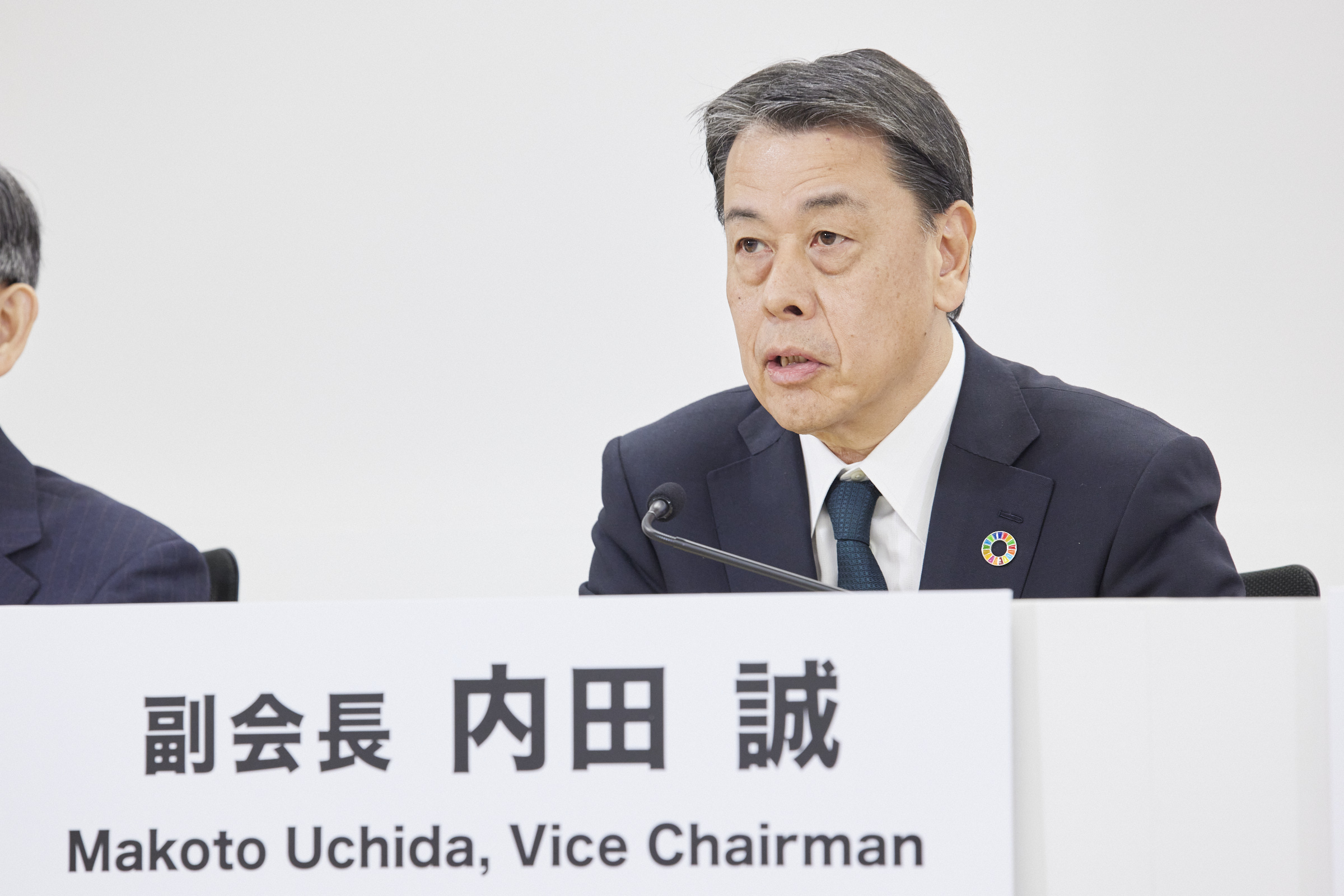
The environment in which the auto industry operates is rapidly undergoing major changes. New challenges and competitors are constantly emerging, and in many cases, these cannot be dealt with by continuing to do things as we have in the past.
In this respect, as Chairman Katayama has mentioned, the key lies in the JAMA leadership working together to expand areas of collaboration while protecting the competitive domains of individual companies, harnessing our competitiveness and Japan’s strengths.
Within this context, I will be working to address the second of our seven issues, which is about building the infrastructure to encourage widespread adoption of electric vehicles.
Given that Japan’s rate of electrification is still low, I want to work with the government and engage related companies on how we can boost (EV) uptake in the country moving forward.
When it comes to finding ways of bringing out Japan’s competitive strengths, I see many potential areas of cooperation. As JAMA, I hope to set the direction through discussions with the chairman and other vice chairmen.
SATO Koji, Vice Chairman
(President, Toyota Motor Corp.)
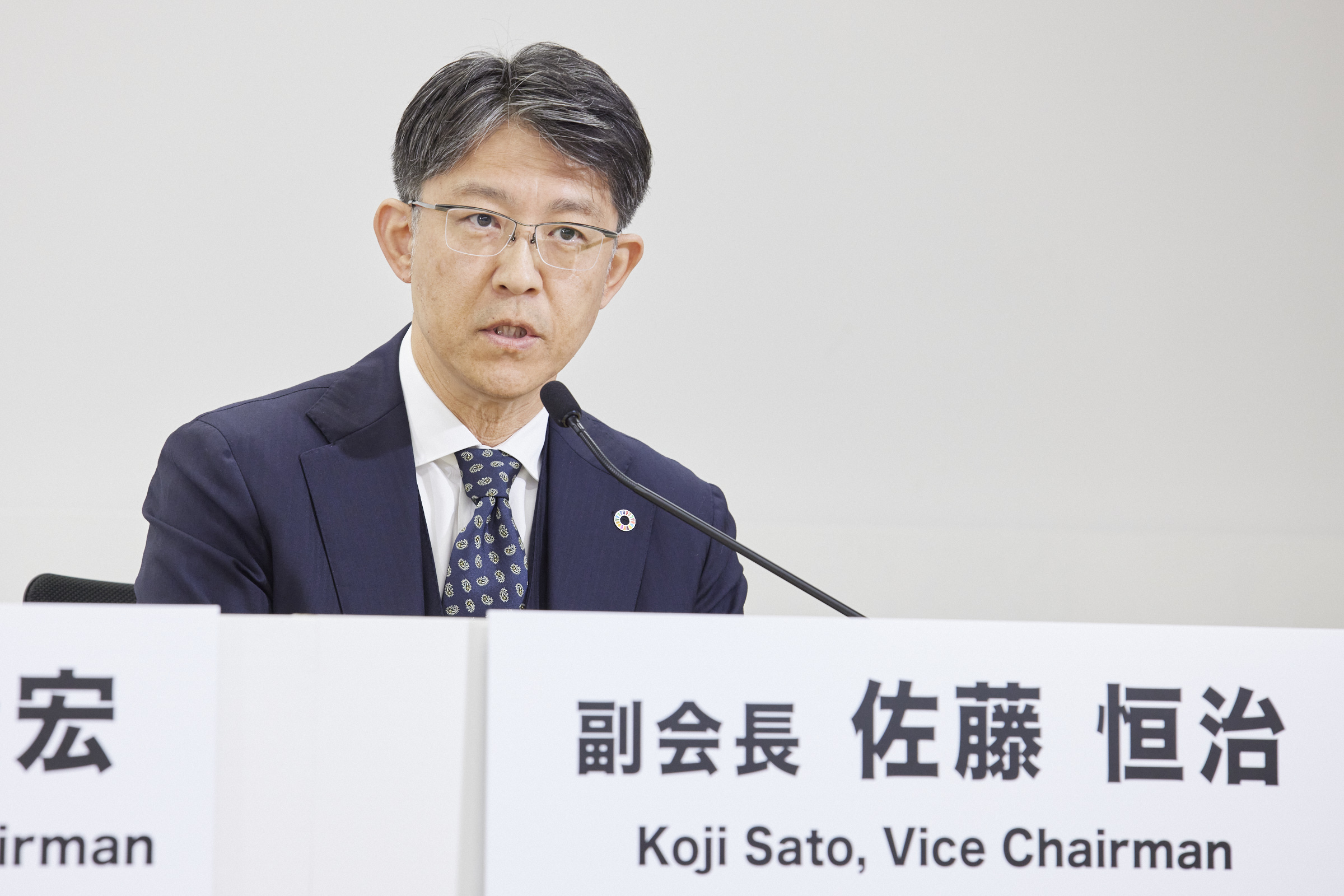
I feel that we are seeing very vibrant discussions around these seven issues.
There is a great deal of collaboration among the vice chairmen and across different topics, which I feel is showing a certain level of progress.
Of the seven issues, I am working on the stable procurement of critical resources and trade policies to effectively use domestic investment.
At last year’s G7 (Group of Seven summit), we presented our uniquely Japanese multi-pathway approach to carbon neutrality. Upon this foundation, one of the means to achieve this goal is (establishing) a vast ecosystem to aid the widespread adoption of battery EVs (electric vehicles), from materials procurement to the secondary use and recycling of batteries. We believe it is crucial that we properly map out these large-scale cycles and explore the various challenges involved.
Particularly when it comes to procuring critical resources, it’s crucial that we also secure stable supply routes for semiconductors. Working with Vice Chairman Mibe, I want to tackle this as a JAMA-wide effort, and to translate cross-industry collaboration into concrete initiatives.
NAGATSUKA Seiichi, Vice Chairman
(President, JAMA)
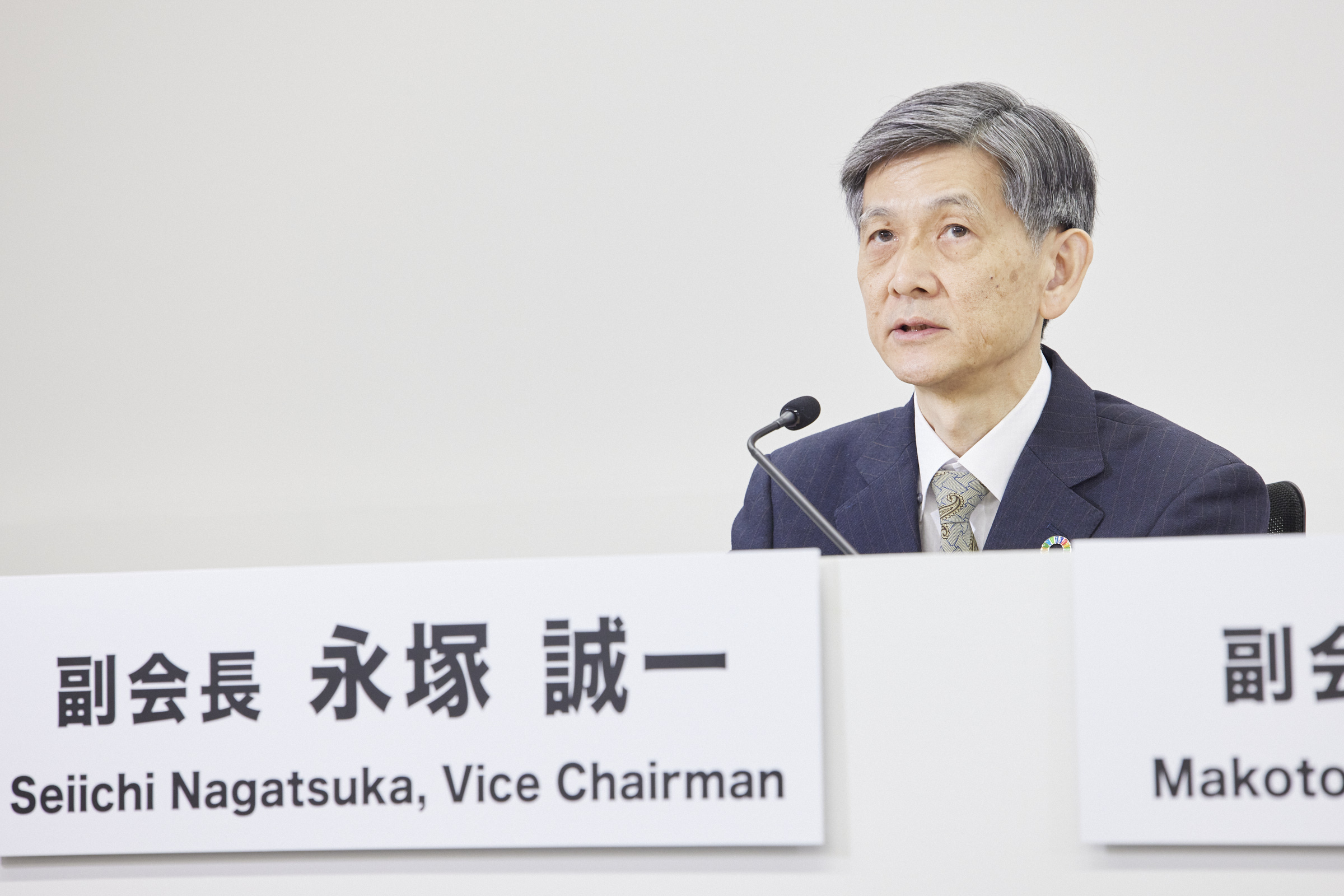
The environment surrounding the auto industry is undergoing tremendous change, presenting a range of mounting challenges. To remain a core industry sustaining Japan’s economy and society, the JAMA team will collaborate with other sectors and work as one to tackle these seven issues and other challenges head-on.
As the person overseeing the secretariat, I will ensure that the framework established through the reforms of former Chairman Toyoda will continue to firmly underpin Chairman Katayama’s efforts. Together with the other vice chairmen and the board, we will navigate our way through this difficult situation.
